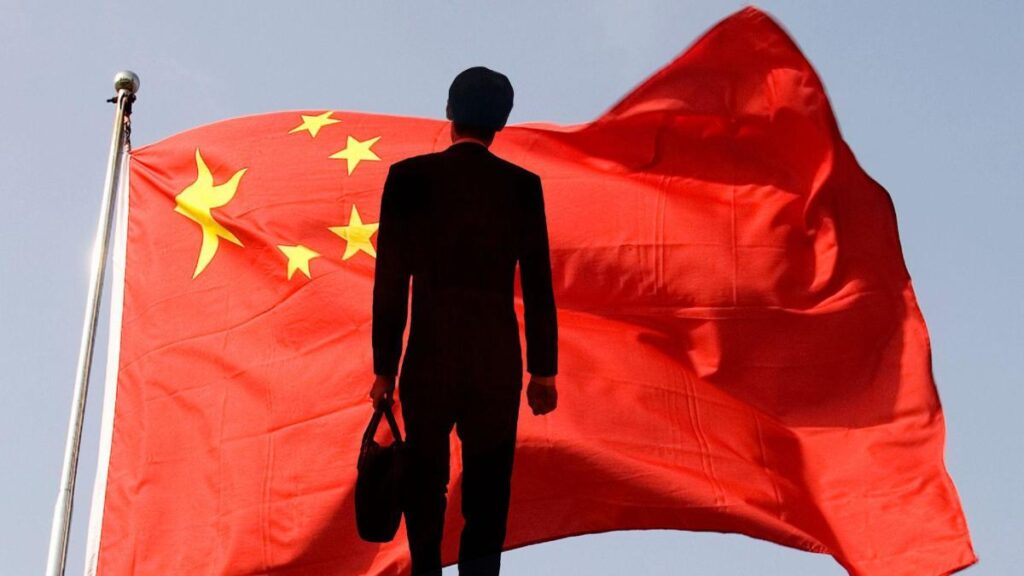China cracks down on companies in real estate, technology, finance and more (Getty Images)
“Now that I think about it, I chose the wrong industry.”
Xiao Chen*, who works at a private equity firm in Shanghai, China’s financial capital, says it’s been a tough year.
In his first year with the company, his salary was nearly 750,000 yuan ($106,200, £81,200). He was confident that he would soon reach the million yuan mark.
Three years later, his income is half what it was then. Last year, his salary was frozen and his annual bonus, which made up the bulk of his income, disappeared.
The industry’s “shine” has faded, he says. It once gave him a “feeling of luxury.” Now, he and his comrades are nothing more than “financial rats,” as they are derided online.
China’s economy, which once flourished by encouraging aspirations, is now in a slump. The country’s leader, Xi Jinping, is increasingly wary of the challenges of personal wealth and widening inequality.
The crackdown on billionaires and businesses from real estate to technology to finance comes with a socialist-style message of enduring hardship and working towards China’s prosperity. Even celebrities are being told to reduce their online exposure.
People are now told that loyalty to the Communist Party and the state takes precedence over the personal ambitions that have transformed Chinese society over the past few decades.
Mr. Chen’s flashy lifestyle is certainly feeling the pinch with this U-turn. He traded his vacation in Europe for a cheaper option, Southeast Asia. And she said she would “never think” of buying from luxury brands like “Burberry or Louis Vuitton” again.
But at least ordinary workers like him are less likely to get into trouble with the law. Dozens of financial officials and bank executives were detained, including the former chairman of Bank of China.
The industry is under pressure. Pay cuts at banks and investment firms have become a hot topic on Chinese social media, although few companies have publicly acknowledged them.
story continues
Posts about salary reductions have generated millions of views in recent months. Additionally, on the popular social media platform Xiaohongshu, hashtags such as “career change from finance” and “quit finance” have been viewed more than 2 million times.
Some financial professionals have felt their incomes have declined since the pandemic began, but many see a viral post on social media as a turning point.
In July 2022, a Xiaohonshu user sparked outrage by boasting about her 29-year-old husband’s monthly salary of 82,500 yuan at China International Capital Corporation, a major financial services company.
People were appalled by the huge gap between the salaries that financial workers received and their own salaries. The average monthly salary in Shanghai, the country’s wealthiest city, was just over 12,000 yuan.
This reignited a debate about income within the industry that was started earlier that year by another online user flaunting his salary.
These posts come just months after Mr. Xi called for “common prosperity,” or policies to narrow the widening gap between rich and poor.
In August 2022, China’s Ministry of Finance announced new regulations requiring companies to “optimize internal income distribution and scientifically design salary systems.”
The following year, finance became a more explicit target of the country’s ongoing anti-corruption campaign, with the country’s top corruption watchdog criticizing the idea of a “financial elite” and the “only money matters” approach.
Shanghai is a financial center and the wealthiest city in China (Getty Images)
Alex*, a manager at a state-run bank in China’s capital Beijing, said the changes were extensive but carried out in a measured manner.
“You won’t be able to see the orders in writing. Even if there is an (official) document, it’s certainly not something people at our level can see. But now… We all know there is a cap on that (salary), but we don’t know what that cap is.”
Employers are also struggling to cope with the pace of enforcement, Alex said, noting that “for many banks, orders can change faster than expected.”
“They will issue annual guidance in February and by June or July they will realize that salary payments are exceeding requirements. They will then set performance targets to deduct employee salaries. We will figure out a way.”
Chen says his workload has decreased significantly as the number of companies going public on the stock market has decreased. Foreign investment in China is declining, and domestic companies are becoming cautious due to the crackdown and weak consumption.
His work in the past often involved new projects that brought in money for the company. Now his days are filled with chores such as organizing data from previous projects.
“Team morale is very low and the discussions behind the leadership are mostly negative. People are discussing what they will be doing in three to five years.”
Although there have been layoffs, it’s difficult to estimate whether large numbers of people will leave the industry. Jobs are currently in short supply in China, so even a low-paying finance job is worth pursuing.
But the frustration is palpable. One Xiaohongshu user compared changing jobs to changing seats, writing: “When you stand up, you may find that your seat is gone.”
Chen says it’s not just the authorities who are benevolent to financial actors, but Chinese society as a whole.
“We’re no longer asked on blind dates. If someone hears you work in finance, they’ll tell you not to go.”
*The names of financial personnel have been changed to protect their identities.

